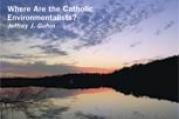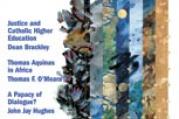Click here if you don’t see subscription options




Elucidation
Professor Lawrence S. Cunningham’s vignette on St. John of the Cross presented a streetwise poet-mystic-reformer (1/30). John’s friendship with St. Teresa of vila and her influence on him were also nicely presented. But St. John’s connections to the Society of Jesus and its influence on him were conspicuously absent.
Before entering religion, John of the Cross was Juan de Yepes, son of Gonzalo de Yepes and Catalina lvarez. Catalina was widowed and in 1551 had to move the family from Toledo in New Castile to the commercial town of Medina del Campo in Old Castile. She hoped that Gonzalo’s wealthy relatives would be of assistance and that her silkweaving trade would make enough money to support the family. The widow Catalina’s family did not receive all the assistance she might have hoped from the Yepes family, and they were often on the verge of starvation.
In the early 1550’s, a number of prominent merchants of Medina del Campo heard Peter Faber, one of the first Jesuits, preach at the court of Philip II in Valladolid. So impressed were they with his erudition and spirituality that they petitioned him to bring the Jesuits to Medina. In 1553 St. Francis Borgia, then comisario, or superprovincial, for the Spanish provinces of the Jesuits, laid the cornerstone of the new school. As with many Jesuit schools of that time, the philosophy of instruction was the modus parisiensis, or the pedagogical style of the University of Paris, which under the influence of humanism stressed, among other things, eloquentia perfecta in the spoken and written word through frequent and varied rhetorical and oratorical exercises.
Juan de Yepes, the future St. John of the Cross, was a scholarship student at that school from 1559 to 1563. The Jesuit school at Medina also stressed, following the pedagogy of the Fourth Week of the Spiritual Exercises of St. Ignatius, that gifts freely received should be freely shared with others, that its students accompany their Jesuit teachers in catechizing the town’s poor children and helping at the local hospitals, where the town’s sick poor were housed. These were all beneficent institutions that the young Juan knew all too well from having spent time in them as a destitute boy.
It is curious how the influence of the three great Spanish mystics of the 16th century, Ignatius, Teresa and John, cross-fertilized one another’s lives and spiritualities and how the suffering that the child of an impoverished widow, Juan de Yepes, a scholarship student at a Jesuit school where he learned eloquentia perfecta in the written and spoken word, would one day blossom into that streetwise poet-mystic-reformer. As St. Teresa would say, God does indeed write straight with crooked lines.
Claudio M. Burgaleta, S.J.






